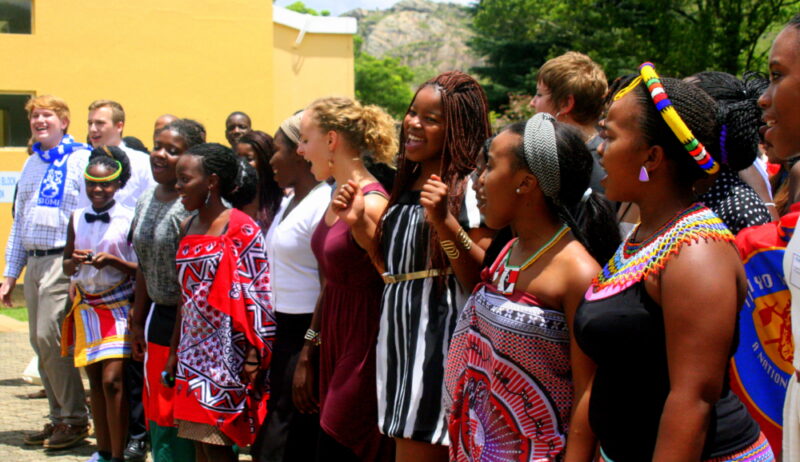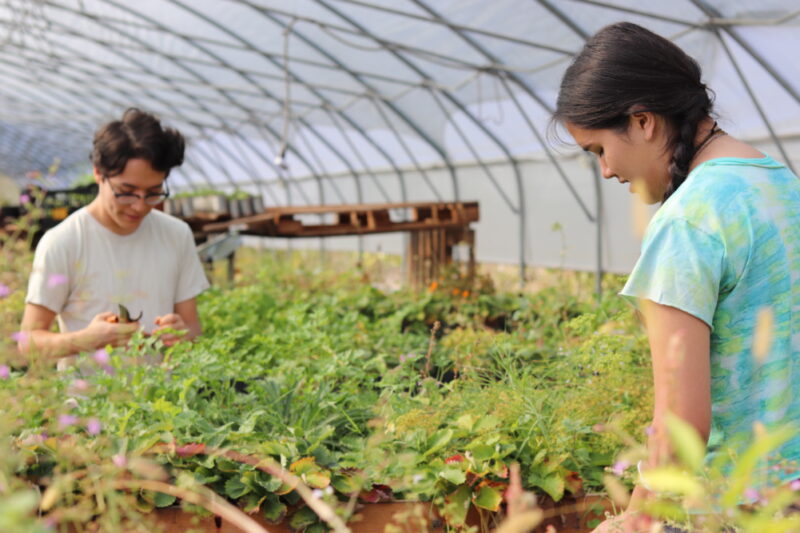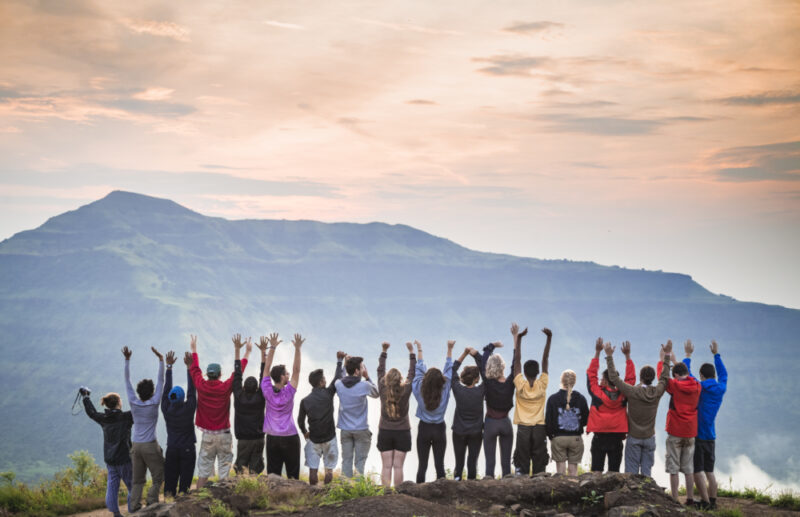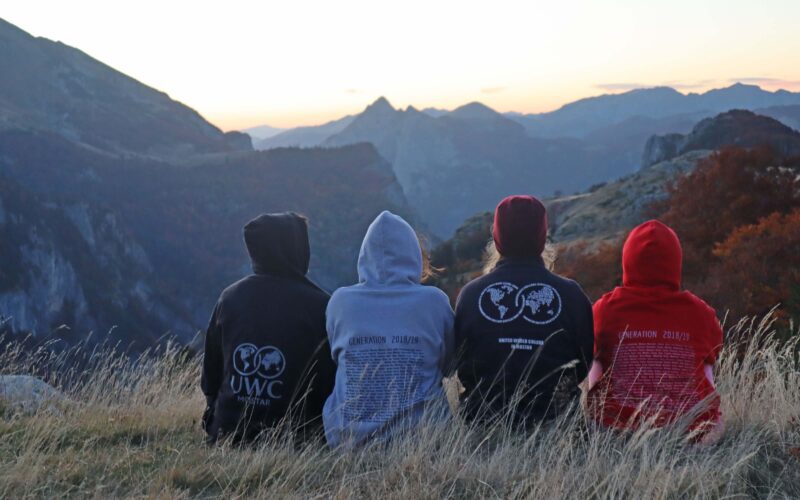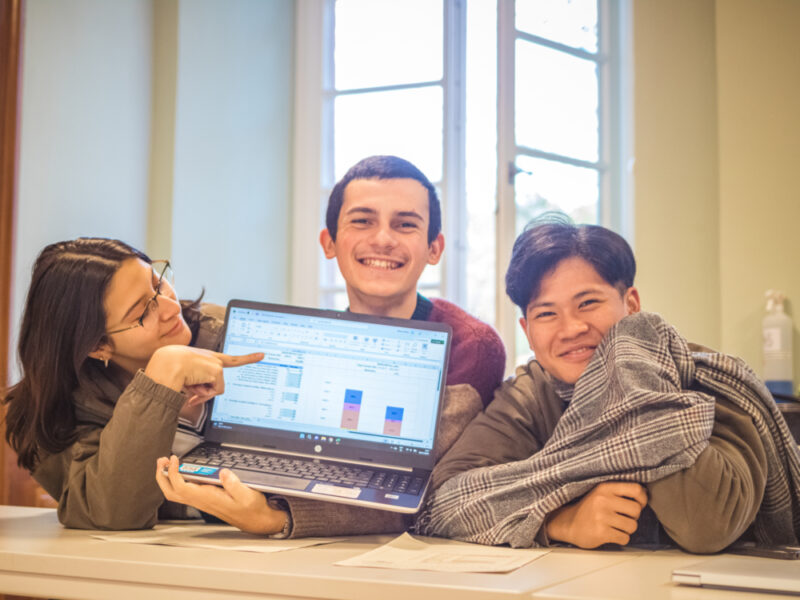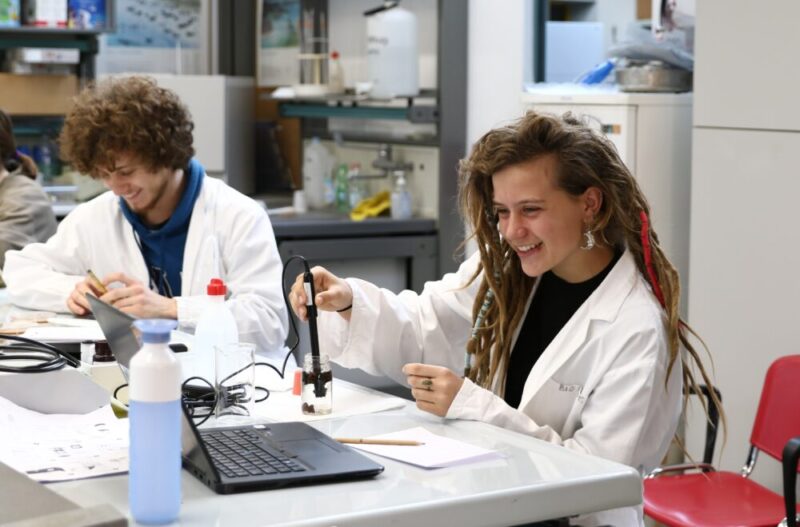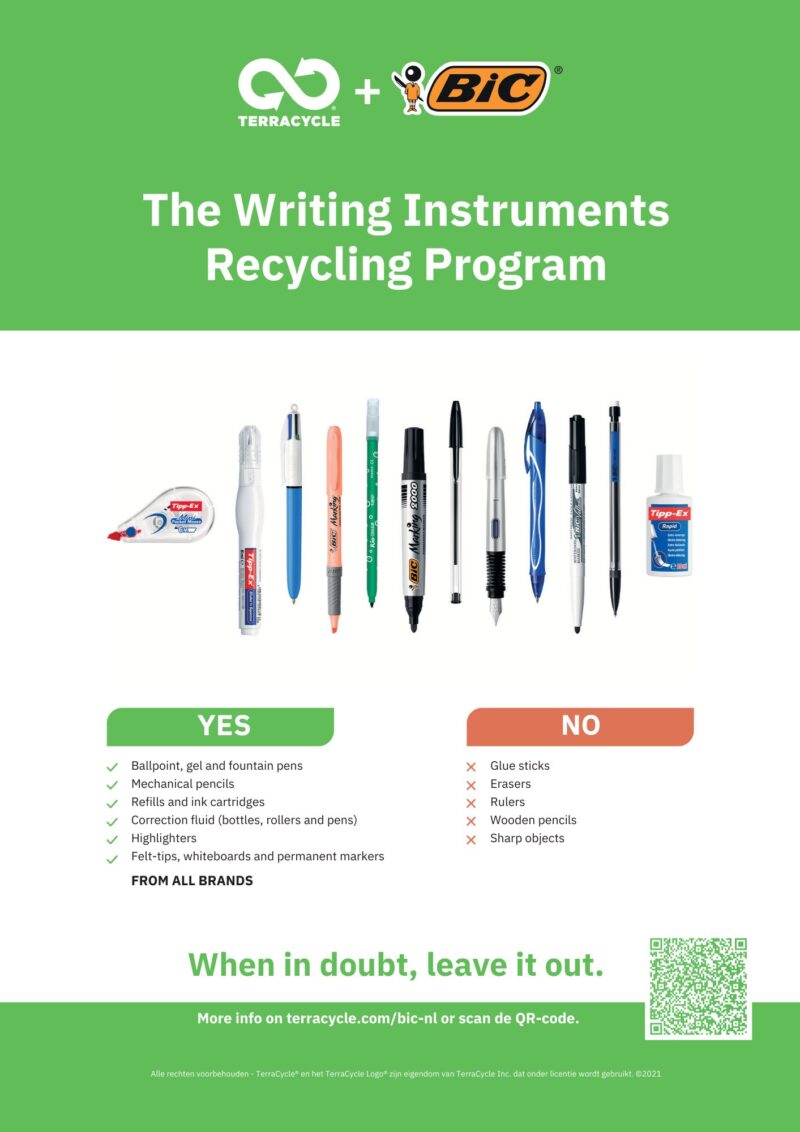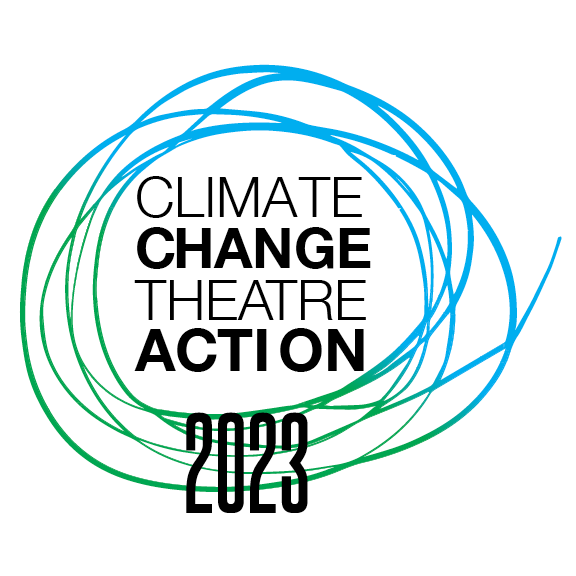UWC Maastricht
UWC Maastricht was born in 2009 from the two pre-existing international schools in Maastricht. In October 2012 a new campus was inaugurated and a student-led Environmental Action Group (EAG) was created some time after. With the enthusiastic guidance of a UWC alumna who became the Sustainability Coordinator, the process to become an Eco-School and also the Swap Shop service (giving a second life to used clothes to ensure access to weather-appropriate-clothing for all residential students while promoting reusing and fundraising for student-led projects) started in 2015. UWC Maastricht was awarded its first Green Flag in 2017, thus being formally accredited as an Eco-School. In these earlier years, a lot of emphasis was put on facilitating Sustainability activities for Primary and Middle School through our Experiential Education program.
Our work has continued and expanded over the years to ensure a more coordinated approach. Facilities (energy efficiency), waste management, the curriculum, student-led groups, sustainability related initiatives as well as communications are all aspects discussed and monitored by the school’s Eco-Team. This body is integrated by students from Primary and Secondary -representing the Student Councils in the three sections of the school and all the Sustainability related groups-, staff members as well as parent representatives, including members from the Parent Association. The Eco-Team meets 9 to 10 times in the school year.
Through this body we undertook and monitored a collaborative and participatory process to redesign our campus from 2019 to 2022, making our playgrounds greener and more exciting to play in, facilitating the planting of more trees that would provide natural shade, enhancing biodiversity by creating a permaculture garden and tree nursery, installing a green wall and surrounding the playgrounds with edible fruit and herbal plants. Part of the Sustainability strategy also included a transition towards renewable energies. To this effect, 1248 solar panels were installed between summer 2020 and March 2021, reducing by almost half our electricity use.
Alongside becoming more energy efficient with transitions such as the replacement of the lighting with LED bulbs in the entire school, we have also seen the strengthening of the student body in matters of Sustainability via the many groups and service teams that have come to life over the years. The active leadership of the high school students in sustainability related matters are a great example for the explorations of student groups in the Middle School, generally through their Service Learning projects and the Outdoor Education Program. The very enthusiastic Primary students are working too on how to become an even better Eco-School and how Sustainability practices must be also integrated at home.
We continue to build community around our school and are proud to count also with many local partners in our network, including Maastricht University and many of its student-led Sustainability groups, the SDG House or the regional Centre for Environmental Education (CNME), to name but a few. As well as sharing best practices with other local schools in Maastricht and other international schools in The Netherlands.
In the last two years we have also launched the Sustainable Business IB Career-related Programme (IBCP), providing an alternative route for students who want to further explore their Sustainability passion and interests via a tailor-made 2 year program that incorporates specialization in Sustainable Fashion, Nature Conservation and Sustainable Hospitality.
All in all, we are very proud of our Sustainability journey so far and are fully committed to becoming a college that has a net positive impact on key issues such as climate, biodiversity and resource management, where all stakeholders in the community understand why we need to adjust our life’s practices to ensure a sustainable future for all.
Some of the Sustainability related services, projects and initiatives represented in the Eco-Team include:
Bee project: high school students engage in service in the local community supporting bee protection projects in parks and neighborhoods with various organizations.
Bike Repair service: high school and middle school students can help peers and staff in an established workshop twice per week to repair their bikes and maintain campus bikes. Often, bikes are also repaired and donated to other local organizations which might need them, such as Maastricht Refugee Project.
Carbon Footprint Monitoring service: high school students collaborate with a staff member to collect data from the school facilities, students and staff and prepare the annual carbon footprint report. Presenting to peers and parents is also part of their service.
Decolonise, NeuroDiversity club, Spectrum and women rights groups: at UWC Maastricht we believe that Sustainability transcends just the environmental focus and must include the relationships and systems we establish in our school and which allow us to better understand the world we live in. That is why the eco-theme PEOPLE is one of our priorities and representatives from these groups are also invited to and part of the Eco-Team.
Eco-School Club: upper Primary students can join a weekly club where they learn further about sustainability and climate action, planning actions and delivering presentations and workshops for their peers as well as monitoring waste separation weekly in their building and promoting the collection of used batteries, for instance. This club is co-facilitated by high school students.
Environmental Action Group (EAG): the founding green group in our school, EAG is generally formed by high school students but often middle school students join too to continue raising awareness about sustainability matters and especially regarding waste management. This group started the leftover food donations from the dining hall to the local Food Bank in 2021 to avoid food waste and will be now collecting used oil from the residential kitchens, hopefully to be recycled by a soap making club within the school. The EAG are also responsible for organizing the Green Friday in November, Earth Hour in March and supporting the Eco-Team throughout the year in various events.
Lost & Found service: to avoid over-consumption of new clothing when things get misplaced, this service promotes tagging of clothes and a pro-active outlook from parents and students to take care of their belongings and search for them when lost. Several high school students collect throughout the week the lost/misplaced items in our school, looking for name tags and returning them to the concerned students. For the untagged items, these are entered into an online lost&found catalogue (this initiative started during the COVID pandemic when parents were not allowed on campus), that parents and students can check when in need. Every 2 weeks, those items that have not been claimed get donated to the Swap Shop (bigger sizes) and children’s clothes and other left over from the Swap Shop get donated to other local organizations with a bigger outreach to the local community.
Outdoor Education (Primary): this program brings our primary students outside of the classroom throughout the week to engage in nature observation and preservation, from taking care of the Tiny Food Forest, collecting seeds or fruits to planting, counting birds or bees in our garden or around the moat, doing scavenger hunts, mapping and navigating. This program integrates all the units of enquiry students initiate in the classroom and connects them through experiential learning with the world outside.
Outdoor Education (Secondary): this program creates opportunities for students to experience the natural world and comprises primarily the hikes and camping done under the Duke of Edinburgh International Award scheme. Students build useful navigation and wilderness survival skills while learning to appreciate and feel the self-reflection of slowing down and being in nature. This program also represents a great opportunity for students to get to know each other and themselves better, in a different setting and often in challenging circumstances due to the weather conditions and physical effort involved.
Student-led Initiatives: all student-led events approved by the school commit to Sustainability principles to minimize waste production and avoid single-use plastic, promote vegetarian meals and include at least one Sustainability related topic at conferences, the musical or cultural weeks. Student reps from these organizing teams are also invited to be part of the Eco-Team.
Sustainability Co-lab: this working group allows staff with an interest to jointly work on sustainability actions throughout the year.
Zero-Waste Meals: this initiative was first initiated by parents in the Eco-Team in 2020, promoting reusable lunch boxes and water bottles among our day students and families by videos with easy to make recipes. Currently, we continue to promote no single-use plastics in our school and students are encouraged to take their waste back home, also as an exercise to assess in what ways we can all reduce our waste production.

